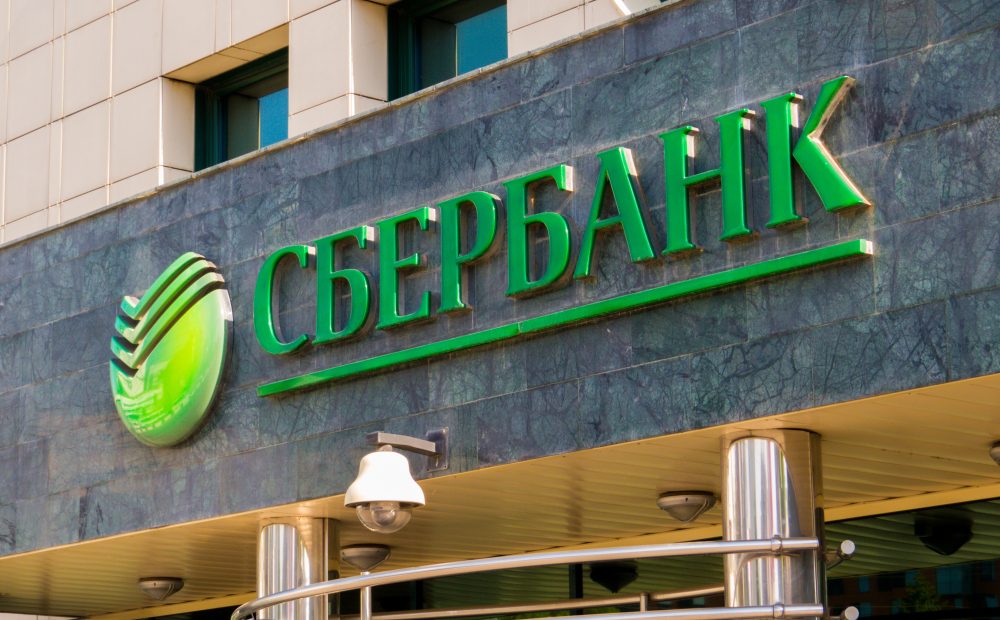Sberbank Moves to Dominate Russia’s Crypto Custody Sector
18.07.2025 6:30 2 min. read Kosta Gushterov
Sberbank, Russia’s largest state-owned bank, is preparing to launch custody services for digital assets, marking a significant expansion into the country’s evolving crypto landscape.
The initiative positions the bank as a key player in Russia’s push to develop a regulated digital asset ecosystem amid shifting regulatory attitudes.
Anatoly Pronin, Executive Director of Sberbank’s Alternative Payment Solutions Department, confirmed the bank has submitted proposals to the Central Bank of Russia. He argued that crypto holdings should be treated similarly to traditional bank assets, with secure custody and compliance measures. The custody service will allow token storage, prevent misuse, and enhance user protection—all under domestic regulatory oversight.
Regulatory Momentum and Strategic Timing
The move follows a major policy shift by the Central Bank of Russia, which recently endorsed the use of cryptocurrencies in international trade. Officials see digital assets as tools to circumvent Western sanctions and promote domestic financial resilience.
Custody services are viewed as critical infrastructure. Gleb Zemskoy of Insight Finance noted that leaving custody to foreign firms poses national security risks. By creating a local solution, Sberbank aims to increase transaction transparency, freeze suspicious assets when necessary, and reduce dependence on external providers.
Digital Ruble Rollout Sparks Mixed Reactions
In parallel, Russia’s parliament has approved a bill to formally introduce the digital ruble starting September 1, 2026. Large merchants will be required to accept it initially, followed by mid-sized firms in 2027 and small businesses in 2028. The rollout includes a government-run QR code payment system via the Mir network.
Despite the government’s backing, skepticism remains. A recent VTsIOM poll revealed that 51% of Russians are hesitant to adopt the digital ruble, with concerns ranging from surveillance to lack of understanding. Only 7% of respondents said they felt well-informed about the CBDC plan.
The bill still awaits approval from the Federation Council and President Vladimir Putin, though both steps are expected to be procedural. Officials hope that the phased introduction and mandated infrastructure will accelerate adoption and reduce transaction costs nationwide.
-
1
History Shows War Panic Selling Hurts Crypto Traders
28.06.2025 18:30 3 min. read -
2
Ripple Faces Legal Setback as Court Rejects Bid to Ease Penalties
26.06.2025 16:54 1 min. read -
3
Coinbase Surges 43% in June, Tops S&P 500 After Regulatory Wins and Partnerships
29.06.2025 21:00 2 min. read -
4
Ripple Has Applied for a National Banking License
03.07.2025 7:00 2 min. read -
5
What Will Happen With the Stock Market if Trump Reshapes the Fed?
29.06.2025 13:00 2 min. read
Bank of America CEO Confirms Stablecoin Plans Are in Motion
Bank of America is actively developing a stablecoin offering, CEO Brian Moynihan revealed during a post-earnings conference call on Wednesday.
PayPal Expands PYUSD to Arbitrum in Latest Blockchain Push
PayPal has expanded its stablecoin, PayPal USD (PYUSD), to the Arbitrum network, marking a key step in its strategy to integrate with faster, more cost-efficient blockchain infrastructure.
Citigroup Explores Launching Stablecoin as Banks Embrace Crypto Shift
Citigroup is evaluating the potential launch of its own U.S. dollar-backed stablecoin, signaling a growing shift in sentiment among traditional financial institutions toward digital assets.
JPMorgan CEO Jamie Dimon Comments Stablecoins
JPMorgan Chase CEO Jamie Dimon remains skeptical of stablecoins—but says ignoring them isn’t an option for the world’s most powerful bank.
-
1
History Shows War Panic Selling Hurts Crypto Traders
28.06.2025 18:30 3 min. read -
2
Ripple Faces Legal Setback as Court Rejects Bid to Ease Penalties
26.06.2025 16:54 1 min. read -
3
Coinbase Surges 43% in June, Tops S&P 500 After Regulatory Wins and Partnerships
29.06.2025 21:00 2 min. read -
4
Ripple Has Applied for a National Banking License
03.07.2025 7:00 2 min. read -
5
What Will Happen With the Stock Market if Trump Reshapes the Fed?
29.06.2025 13:00 2 min. read


